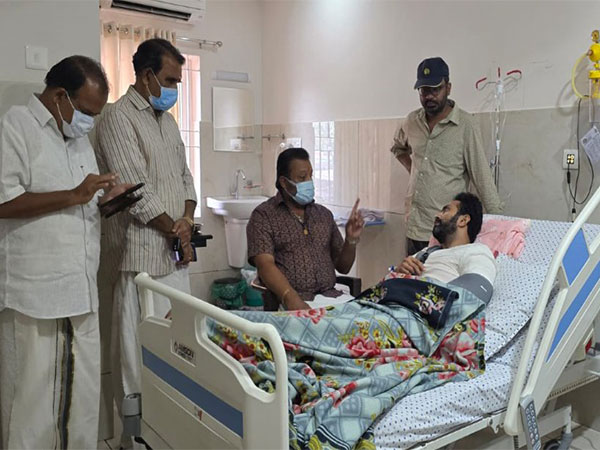Surgeons In The US Transplant Pig's Kidney To Human For The First Time
The kidney was successfully attached to a brain-dead patient who passed away after the 54 hour test
For the first time in medical sciences, a pig's kidney was attached to a human being and it was found that the kidney performed its work successfully.
The surgery was carried out on September 25 at the transplant institute of the New York University (NYU) Langone under director Robert Montgomery. He has called the transplant a "potential miracle".
The two hours long surgery involved a genetically modified donor pig and a brain-dead patient on a ventilator whose family had permitted the two-day experiment, for the sake of advancing science, reported AFP.
Terming the surgery a success, Montgomery said, "It did what it's supposed to do, which is remove waste and make urine." The organ was able to reduce the level of the molecule creatinine, a key indicator of kidney health that was elevated in the patient prior to the transplant.
The patient had wanted to donate organs but as their organs were not suitable for donation, the family members were suggested to allow for this experiment on the patient.
"They felt a sense of relief that this was another opportunity for donation," said Montgomery. The patient was taken off the ventilator and passed away following the 54-hour test.
The First
"It is still a question what would happen three weeks from now, three months, three years," said Montgomery.
"The only way we're really going to be able to answer that is to move this into a living human trial. But I think this is a really important intermediate step, which tells us that at least initially, things are probably going to be okay."
This was the first time that a pig's kidney was transplanted to a human being. The donor pig belonged to a herd that had undergone a genetic editing procedure to knock out a gene that produces a particular sugar, which would otherwise have triggered a strong immune response and led to organ rejection. Such cross-species organ donation is called xenotransplantation in medical terms.
Earlier, experiments were conducted on non-human primates that showed positive results with the organs working for up to a year.
Montgomery has said that he will send the results of the experiment to a scientific journal for publishing and plans to conduct a clinical trial in a year or two.
Organ Shortage
The transplant is being considered a big step towards meeting a shortage of organs in the United States (US).
According to official US data, there are nearly 107,000 Americans awaiting an organ -- 90,000 of whom need a kidney. Seventeen Americans die each day while waiting for an organ.
The same situation is faced by patients awaiting organ transplantation in India. According to Organ Retrieval Banking Organisation (ORBO) of All India Institute of Medical Sciences (AIIMS), while there are not exact figures, there is a need of about 1.5 to 2 lakh kidney transplants a year, while only about 8,000 transplants happen. Also, as against 40,000-50,000 liver transplants required a year, about 1,700-1,800 happen each year.
"Estimates also say that about 15,000 heart transplants are required a year but only about 250 heart transplants happen every year. We are only able to collect about 60,000 corneas," says Dr Aarti Vij, the in-charge of ORBO.
Research is taking place in the field of xenotransplantation to meet this demand. Today, pig heart valves are widely used in humans, and pig skin is grafted on human burn victims.
Pigs make the ideal donors because of their size, their rapid growth and large litters, and the fact they are already raised as a food source said Montgomery, who himself was on a waitlist for a heart transplant, which he finally received two years ago.
The technique could one day provide a "renewable source of organs," much like wind and solar provide sustainable energy, he said.
"I think people will see that and accept that, particularly the people who are waiting and desperate -- they will see this as a potential miracle for them as we move this forward."








































